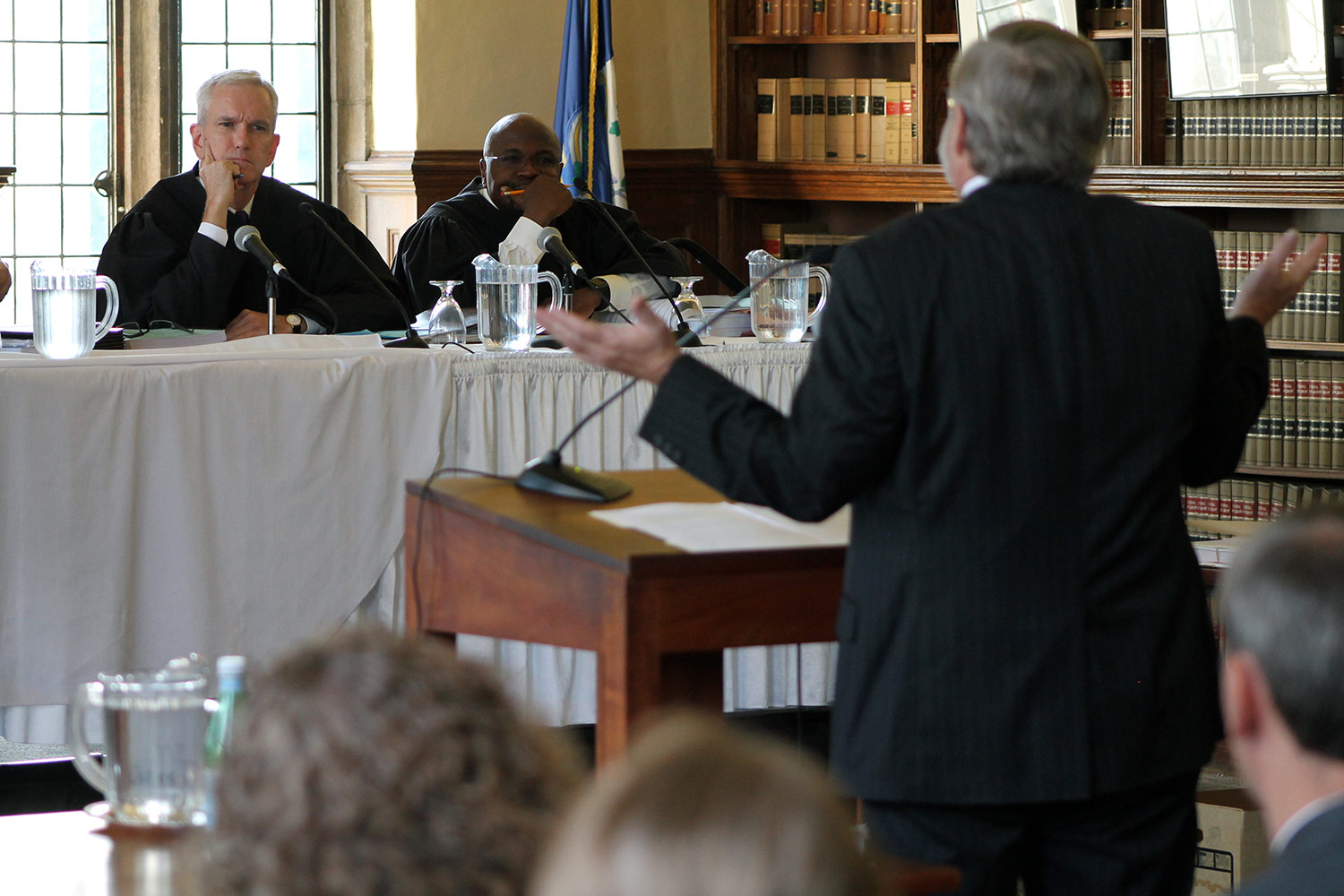The Connecticut Supreme Court brought a question of marital privilege in a murder case and another about real estate recording fees to UConn School of Law on Wednesday.
The session was part of the Judicial’s Branch’s “On Circuit” program, established to educate the public, especially students, through live court proceedings outside the courthouse. After oral arguments in each case, the justices left the room and members of the audience asked the lawyers involved about their arguments and strategies.
About 200 people were present for each case in the Reading Room in William F. Starr Hall. In opening the session, Chief Justice Chase Rogers noted that three justices are graduates of UConn School of Law: Justice Dennis G. Eveleigh ’72, Justice Richard N. Palmer ‘77 and Justice Andrew J. McDonald ‘91.
The first case, State v. Davalloo, involved the appeal of a murder conviction on the grounds that the defendant’s husband should not have been permitted to testify about conversations between them. Assistant Public Defender Mark Rademacher ’82 argued that the conversations should have been protected by the marital communications privilege but Senior Assistant State’s Attorney Timothy J. Sugrue said that state law specifies that such conversations are protected only when they are “induced by the affection, confidence, loyalty and integrity of the marital relationship.” The defendant, Sheila Davalloo, was convicted of murdering a rival in a love triangle and in a separate trial of trying to kill her husband.
Asked afterward about the preparations for oral argument, Rademacher said, “You have to come up with what is the question that I’m most afraid of, because it’s probably going to be asked. And you have to fashion an answer.”
The second case, Merscorp v. Malloy, challenged a state law passed in 2013 that imposed a recording fee for land records filed by “nominees of mortgagees.” The plaintiff, Merscorp Holdings Inc., the only entity subject to the new fee, alleged that it violates the company’s rights to equal protection and due process and creates an unconstitutional burden on interstate commerce. Rogers and MacDonald did not sit on the case because of conflicts of interest.
Afterward, the lawyers were asked how they would approach an argument if they didn’t believe in a client’s position. Linda L. Morkan ’87 of Robinson & Cole LLP, representing Merscorp, said “I always find a way to believe,” adding that a lawyer in private practice has the ability to pick and choose cases. Assistant Attorney General Matthew Budzik, representing the state, compared the facts in a legal case to Lego blocks, which he said can be put together in different ways. His aim, he said, is to put the facts together to support his argument so that he can suggest to the court “you want to look at it this way instead of that way.”
Dean Timothy Fisher said the court’s visits enrich the Law School. “Our students were very fortunate to get a look inside these cases of deep personal and national importance,” he said. “It’s fascinating to see in real time how the court struggles to draw lines in a way consistent with the law.”
The state Supreme Court last visited UConn School of Law in April 2012. The Connecticut Appellate Court visited to hear two cases in April 2014.



